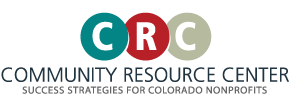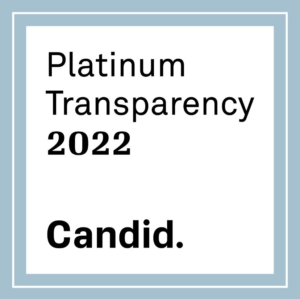Workshops & Speakers
Wednesday, June 12
"Telling Your Story" Pre-Conference Training Make-Up Session (9:00 - 11:30 AM)
Session Description: The Community Resource Center and Anschutz Family Foundation provide these critical training sessions across the host region prior to the three-day conference. In addition to learning about what Rural Philanthropy Days has to offer, you’ll get to take part in a “telling your story” training workshop designed to help you articulate your organization’s work and impact in a clear and concise manner. Whether you’re a veteran fundraiser or a newcomer to the nonprofit world, creating the perfect pitch is essential in introducing your organization to somebody for the first time, including potential donors and grantmakers. Come be inspired and get prepared to make meaningful connections with funders and other community leaders at Rural Philanthropy Days. This makeup session is available to any conference registrants that did not attend a previously hosted session.
Pre-conference trainings are required for first-time RPD attendees.
Grantwriting 101 (9:00 - 11:30 AM)
Session Description: This class provides an introductory overview to the process for securing grant revenues: Prospective funder research and relationship building with funders. How to effectively write and edit a proposal for submittal to a funder (what are the questions I’ll need to be able to answer?). Presenting budgets and other financial information, and preparing required attachments. Participants will learn about the various sources of grant funding – government, foundations, corporations and businesses, service clubs and even churches – and how to determine if these offer viable opportunity for an organization. We’ll discuss “the rules of the game,” proven formulas for success (and typical rookie mistakes) and trends in granting. Further, we’ll discuss an organization’s readiness for jumping into the world of grants, and getting organized to do so. This workshop is for those looking to raise money for an organization, program or special project (e.g. capital expansion) and wish to explore grants as a viable part of the overall fundraising strategy.
Illene Roggensack owns Third Sector Innovations, based in Grand Junction, working with Western and rural Colorado’s small/mid-sized organizations to meet fundraising, communications, leadership and other development needs. Illene’s expertise as a grant writer comes from 32 years as a researcher, writer and editor. This experience is coupled with an MBA, a BA in journalism and recognition as a Certified Fund Raising Executive (CFRE). She is a Past President for Colorado Nonprofit Association and has proudly worked with Southwest Rural Philanthropy Days to present the Effective Boards fall training series since 2016.
CAF Rural Funders Learning Network Luncheon (10:45 AM - 12:30 PM)
This pre-conference gathering of grantmakers, hosted by the Colorado Association of Funders at Solar Energy International just outside of Paonia, will provide an opportunity to connect with peers, a local community fund, and learn more about the North Fork Valley and Delta County. Local experts will talk about locally sourced energy as well as the story of how a local electric coop has been able to light up its communities and households with world-class gigabit broadband service setting it apart from many areas in Colorado and the nation. As space is limited to 40 people, we kindly ask that you only sign-up if you know you can attend. (*This selection is open to Grantmakers Only)
Welcome Remarks & Kick-Off Presentation
Session Description: Begin the 2019 Western Slope RPD conference with welcome remarks and an inspiring kick-off presentation by Sally Kane. Together we will explore the theme of how connections are made, how connections lead to a sense of belonging, how a sense of belonging leads to clarity of purpose, and how all of that allows meaning to take form.
Sally Kane is a third generation Colorado native. She was born in Denver and raised on the western slope. Sally was educated in Colorado public schools and attended Colorado State University where she earned a BA in Social Science in 1986. Her working life includes owning her own business in the private sector, working in health care in the public sector, and thirty years in the nonprofit sector in many different roles.
Western Slope Regional Town Hall (1:45 - 2:45 PM)
Session Description: Join the WS RPD Steering Committee for an energizing, collaborative conversation about the nonprofit sector in Delta, Eagle, Garfield, Mesa and Pitkin counties. These facilitated, small group dialogues will bring together nonprofit professionals, community leaders, and funders to network and create a collective message of the strengths and assets of the sector. Participants will leave feeling motivated and ready to take full advantage of the RPD conference and leverage their knowledge and passion to establish new partnerships and discover key opportunities.
Maria Fabula, President and CEO of Community Resource Center, brings more than 17 years of experience in nonprofit management, fund development, volunteer engagement, collaboration and business development. Maria has extensive experience delivering training and consulting services to increase nonprofit capacity. Maria earned a B.A. in Political Science from the University of California at San Diego and has spent a majority of her career connecting government agencies, nonprofit organizations and private enterprises to improve community. Her experience includes leadership positions with the Nonprofit Support Center, the Junior Statesmen Foundation and the California State Senate.
Meet the Funders - Round 1 (3:00 - 4:00 PM)
Session Description: The “Meet the Funders” sessions provide an introduction to a group of Colorado grantmakers and an opportunity for peer-learning and networking. Foundation staff will share information on strategic funding initiatives, giving philosophy, and grantmaking process. Nonprofits will gain valuable insight on potential partnerships with each funder and opportunity for open dialogue and questions.
General Purpose Funders Group 1: Daniels Fund, El Pomar Foundation, Kenneth King Foundation
General Purpose Funders Group 2: Adolph Coors Foundation, Anschutz Family Foundation, A.V. Hunter Trust, Buell Foundation,
Government Support: Department of Local Affairs, State Historical Fund, USDA
Healthy Communities: Colorado Health Foundation, NextFifty Initiative
Meet the Funders - Round 2 (4:15 - 5:15 PM)
Session Description: The “Meet the Funders” sessions provide an introduction to a group of Colorado grantmakers and an opportunity for peer-learning and networking. Foundation staff will share information on strategic funding initiatives, giving philosophy, and grantmaking process. Nonprofits will gain valuable insight on potential partnerships with each funder and opportunity for open dialogue and questions.
General Purpose Funders Group 1: Daniels Fund, El Pomar Foundation, Kenneth King Foundation
General Purpose Funders Group 2: Adolph Coors Foundation, Anschutz Family Foundation, A.V. Hunter Trust, Buell Foundation,
Government Support: Department of Local Affairs, State Historical Fund, USDA
Healthy Communities: Colorado Health Foundation, NextFifty Initiative
(Walking Tour) Crossroads Park: The Impact of Grants on a Community Initiative (5:15 - 6:15 PM)
This walking tour will showcase the Valley sports complex located next to Hotchkiss High School, featuring the Valley’s only public pool, as well as sports fields, a playground and picnic facilities. As a direct result of contact with funders at a Rural Philanthropy Days conference in 2017, grants received enabled Crossroads Park to undertake $926,000 in improvements. The most recent project, which will be in progress in June, is the baseball/softball complex. New Weatherport structures and a bicycle pump track and trails system is 90% finished now, and should be complete in June.
Thursday, June 13
Concurrent Breakout Sessions 1 (10:00 – 11:30 AM)
Concurrent Breakout Sessions 2 (1:00 – 2:30 PM)
Concurrent Breakout Sessions 3 (3:00 – 4:30 PM)
Friday, June 14
Funder Roundtables (9:00 AM – 12:00 PM)
This is an opportunity for grantseekers to get immediate feedback from potential grantmakers on their nonprofit funding needs. Each grantseeker will have two minutes to give their pitch in “round-robin” style conversations with grantmakers. Grantmakers will then provide immediate feedback to grantseekers as to whether or not that grantseeker is a good match with their particular grantmaking entity. We ask that each grantseeking organization send no more than two representatives to Friday’s Funder Roundtables. This ensures all organizations have the opportunity to visit with participating funders. Only grantseekers headquartered within the five counties of the Western Slope region will be permitted to participate in roundtables.
Post-Conference Activities
Stay a little longer and enjoy Delta County! Be Inspired to Linger!
Here are some ideas for relaxing before you head home from the conference. Information will be available at the Registration headquarters.
Wine Tasting. June 14-16 we celebrate North Fork Uncorked. Local winemakers will host three days of exciting events featuring wine and food pairings, barrel tastings, music, picnics, and winemaker dinners. Fun activities for everyone. Maps and information available at registration.
E-biking. Rent an e-bike in Paonia at the Cirque. Explore the surrounding mesas and enjoy the bucolic scenery, small farms, ranches and vineyards.
Explore the outdoors and clear your head after the conference! Hiking, mountain biking, fishing, rafting you name it we have it.
Cedaredge and the Grand Mesa. Take the long way home and experience Cedaredge’s lovely downtown and new Arts & Events Center as you go up to the spectacular Grand Mesa, the largest flat-top mountain.
The Black Canyon of the Gunnison. Go past the Town of Crawford on Highway 92 and turn off toward the North Rim of Black Canyon National Park. Whether you take the car tour or choose to hike to Exclamation Point, you won’t be disappointed. Allow 2-3 hours for a leisurely tour.
Take in some music. In Paonia, we love art & we love music. Ask a local. There are a number of venues that host local, regional and international talent. In the North Fork, we like to think of ourselves as Small Towns with a Big Personality!
Relax at the P.U.B. (Paonia United Brewery). You’ve been to microbreweries but this one is special. Based in a remodeled historic church, P.U.B. is dedicated to making and serving high quality, small-batch craft beer. Grab a seat in the back and chill out. You may even be serenaded by a local musician.

